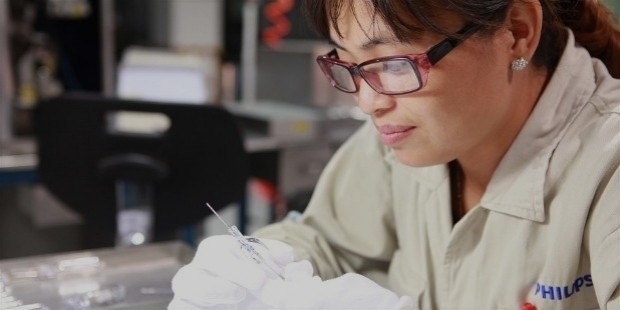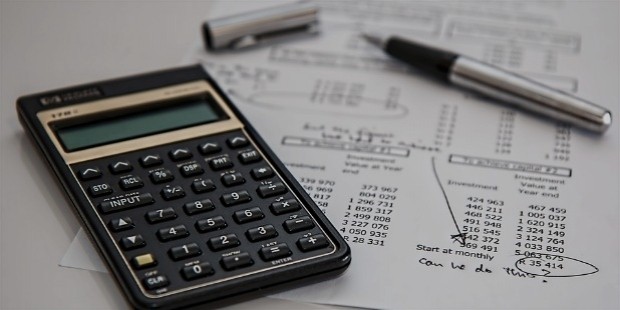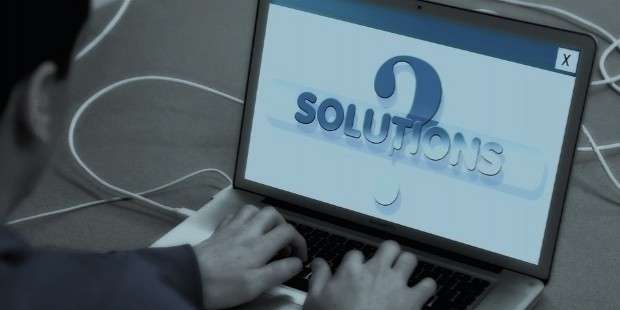How To Improve Problem Solving

Problem solving is a battle we fight everyday. And the better we are at it, the easier our lives are. It gets easier though when you realize that problems are simply choices. There is nothing ‘intimidating’ about them other than having to make a decision. The better you are at dealing with problems, the happier and more relaxed you would be.
5 Ways to Improve Problem Solving Skills
1. Focus on The Solution , Not on The Problem

Our brain cannot find solutions if you focus on the problem. This is because when you focus on the problem you’re effectively feeding ‘negativity’ and activating negative emotions in the brain. These emotions block potential solutions. Try and remain calm. It helps to first acknowledge the problem and then move your focus to a solution.
2. Have An open Mind

Positive Thinking Means A Healthy Mind
It is important to keep an open mind to boost creative thinking and trigger potential solutions. Do not ridicule yourself for coming up with ‘ineffective solutions’. More often than not, it is the crazy ideas that get results rather than more predictable and viable solutions.
3. View Problems Neutrally

A problem simply indicates that something is currently not working and that you need to find a way around it. So try and approach problems neutrally – without any judgment. Negative thoughts will block any potential solutions from surfacing
4. Think Laterally

Try to change your approach and look at things in a new way. Look for a solution that is the polar opposite! Even if it feels silly, a fresh & unique approach usually stimulates a fresh solution
5. Simplify Things

Demonstrate Your Problem Solving Skills
We have a tendency to make things more complicated than they actually are. Concentrate on the basics and ignore the details. Try looking for an easy and obvious solution – you might be surprised at the results! And we all know that it’s often the simple things that are the most productive.
10 Ways To Improve Problem Solving Skills
1. Have a Healthy Frame of Mind

Maintain That Positive Attitude
Try not to panic or play the victim. Don’t think, “Why me Think, “How can I resolve this?” The two things to always bring into the situation are positive thinking and open-mindedness.
2. Keep Emotions out of it

Don’t make a mountain out of a molehill. This is exactly why a stable frame of mind is paramount. Remember that for every problem there is a solution. Don’t get tunnel-visioned so that the problem is magnified.
3. Know when To Speak Up And When To Keep A Problem To Yourself

Positive Affirmations for Work
Sometimes, alerting others of a problem that you’re experiencing breeds additional drama. However at times in a business set-up, it is wise to alert superiors and co-workers so that they can assist in solving the problem before the situation escalates.
4. Define the Problem Clearly
Improve Your Work and Productivity
Sometimes it looks like there are multiple problems, but actually it is just one problem with several symptoms. Try to find the root cause of a problem instead of looking at a myriad of symptomatic issues.
5. Identify Causes , Especially The Root Cause
Consider how and why it happened. Look at the problem from different perspectives. It wouldn’t be considered a ‘problem’ if you knew how to solve it. This is why it’s imperative to consider other views and opinions. Others may see it differently.
6. Gather As Many Facts As Possible

Collect information based on evidence not on feelings. It’s easier to come up with problem-solving strategies when you’re not emotionally charged. An informed mind is much more capable of a sensible resolution than an uninformed one
7. Brainstorm Solutions

Stop Going Within, Start Going Without
Before brainstorming, make sure you’ve clearly defined the problem and gathered solid facts. Ask others for input. Often how others view something is completely different from how you view it. This may be because you might be too close, tunnel-visioned , or too emotionally charged to distinguish between facts and exaggerations.
8. Make a Decision as soon as possible
One Decision will Change your Life
When you avoid a problem, it either becomes a larger problem or leads to additional problems. Be diligent about defining the problem and gathering solid information so that you can brainstorm effectively.
9. Assign responsibility for who does what in the resolution

Use outlines, graphic organizers, color codes, charts, tables, graphs, and spreadsheets. Any of these tools can help organize and plan out the steps required for reaching a solution. These tools will ensure that you don’t get side-tracked and end-up focusing on things that are irrelevant to the original problem.
10. Take Actions That Are Focused on A Solution

Find a solution and prepare a step-by-step plan of action to solve the problem. A plan promotes implementation of the solution. Remember to remain focused on one thing at a time
Decision Making – How To ?

Every decision making process produces a final choice that may or may not prompt action. Decision making is the process of identifying and choosing alternatives based on the values and preferences of the decision maker. It can be regarded as a problem solving activity that results in a viable solution.
A major part of decision making involves the analysis of a finite set of alternatives described in terms of evaluative criteria. Then the task might be to rank these alternatives in terms of how attractive they are to the decision maker, while at the same time considering the criteria. Another task might be to find the best alternative or to determine the relative total priority of each alternative based on all the criteria.












